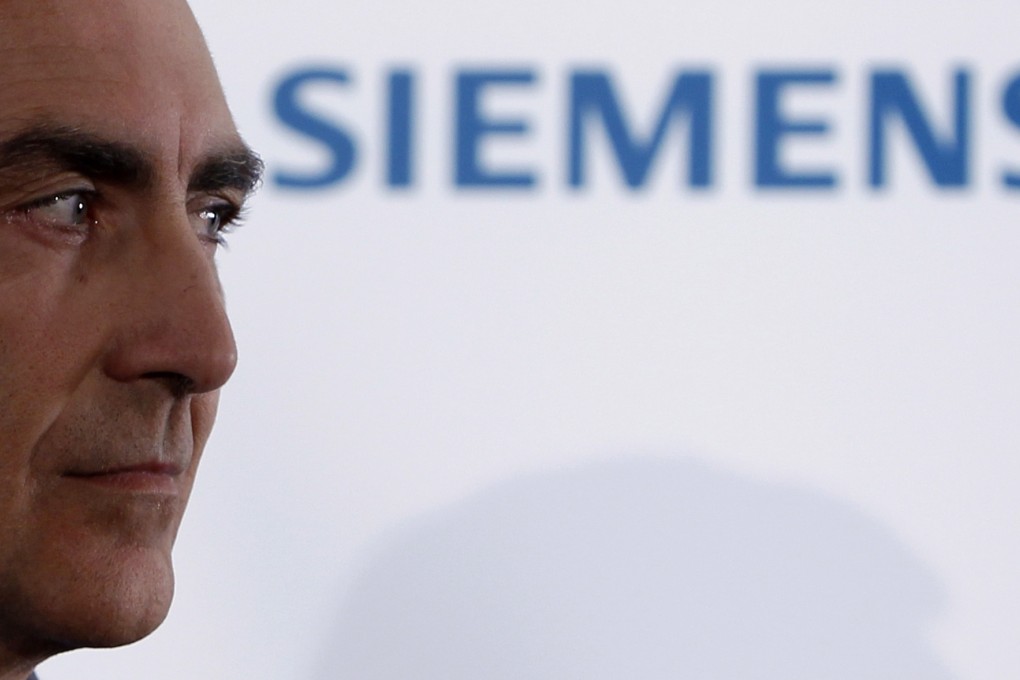
Tension in the highest ranks of German engineering giant Siemens had been brewing for months when top managers gathered late last month to review the state of the business.
The 166-year-old titan of German industry was having a horrible year, its image tarnished by pricey delays to offshore wind and high-speed train projects, and the closure of its solar thermal business, which had lost 1 billion euros (HK$10.1 billion).
But few of those present could have guessed, as they entered the sleek white Siemens Forum building in Munich, that long-running resentments and rivalries were about to boil over with dramatic effect.
The nine members of the management board, led by chief executive Peter Loescher, had come together on a Thursday in the midst of a German heat wave, one week before Siemens was to publish its third quarter results.
With some executives taking part by phone, the discussion took a gloomy turn, sources familiar with the talks said, as the heads of the company’s big divisions -- industry, energy, healthcare and infrastructure -- warned about disappointing orders and a deteriorating economic environment.
Some argued that Loescher’s goal, announced less than nine months before, to boost the firm’s operating profit margin to 12 per cent by next year, looked unrealistic. Joe Kaeser, the finance chief who had long viewed that goal with scepticism, agreed.
Loescher pushed back, but to no avail. The fateful decision was taken: Siemens should abandon the profit goal.
